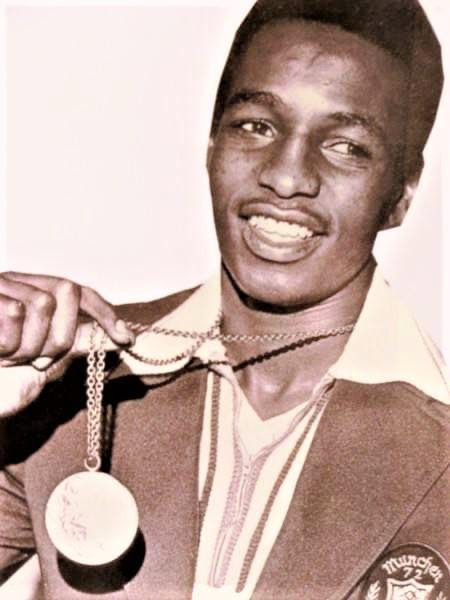
Boxing for the 26-year-old Samargis, who lives in Twin Falls, is a real family affair. She’s trained by her husband, Jason, and their two sons, Skyler Bellus (11) and Riley Marovich (8), are in USA Boxing. Skyler, in fact, has competed in several tournaments in which his mother also fought.
“I got into boxing just as a form of weight loss,” Kendra explained. “My husband had been a boxing coach for many years and he still had all of his equipment. We set it up in our garage and started training. At first, starting out was the worst thing I had ever done. The amount of stamina, endurance, and strength that I needed to have was unreal. Slowly over time I lost tremendous weight, 73-pounds to be exact, and I came to love the sport.
“I’m always asked what it’s like to be trained by my husband. I always say I have a secret weapon, someone who is in my corner who wants me to succeed just as much as I do and supports me throughout. Also, in times we’re at tournaments, I am never alone the night before a big fight and if I need a pep talk, he is right there. Now, my sons competing with me, well, that’s a different story. Being on the outside of the ring while my boys are competing is by far harder than any fight I have ever had. My mom-side definitely kicks in. At the end of the day, though, I know how well trained they are, and I have to trust that. I don’t work their corners because that’s too close. I would throw in the towel every time. I have to be in the stands.”
Kendra and both of her sons will be competing in Shreveport this year, despite having to train during the COVID-19 pandemic to prepare for the first national tournament of the year in the United States.
“Training during the pandemic has been a blessing for me,” Kendra said. “We now own a gym in town. So, during the times we had to close our doors, my husband, kids and I were able to keep up with our training regimen. I learned so much during this time. We were actually able to slow things down and work on so many things that get overlooked. We are also very lucky to live in a small town, we only had to keep our gym closed for two months and we’ve been up and running since. I could only image how hard it must be for so many people during these times. We were very blessed to have a gym to get us through.”
Currently ranked No. 10 at 152 pounds and No. 5 at 165, Kendra’s highlights thus far are winning gold medals at the 2019 Eastern Elite Qualifier and 2018 National Golden Gloves Tournament.
An aggressive boxer who throws punches in bunches, Samargis believes she’s made dramatic improvement in the past years. She admittedly changed many different parts of her game, focusing more on movement, foot and head placements.
Eventually, she wants to capture top honors at multiple national tournaments, starting with this year’s Nationals Championship, and eventually turn pro to shoot for a world title. For now, though, she’s all in for the Nationals.
“I am my biggest competition for this year’s National Championships,” she concluded. “Every day I want to be the best version of myself and every day I wake up to the haunting possibility I could fall back into the person that I used to be. I have to go to war everyday with myself to keep this person at bay. All of the hours of training, nutrition and mental preparation helps me accomplish this. Every day I can continue to be the best version of myself, focusing only on getting better, then who I compete against won’t matter.
“I am beyond ready and excited for the National Championships this year. With the world coming to a halt this will be my first tournament of the year. I am ready to get back in the ring. Medaling will give me another national title under my belt and sharpen my resume for when I turn pro.”
INFORMATION:
www.usaboxing.org
Twitter: @USABoxing, @USABoxingAlumni
Instagram: @USABoxing
Facebook: /USABoxing







